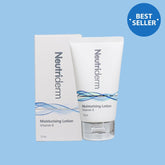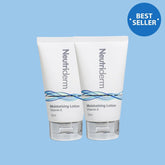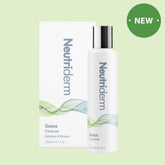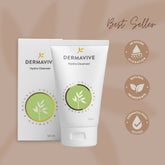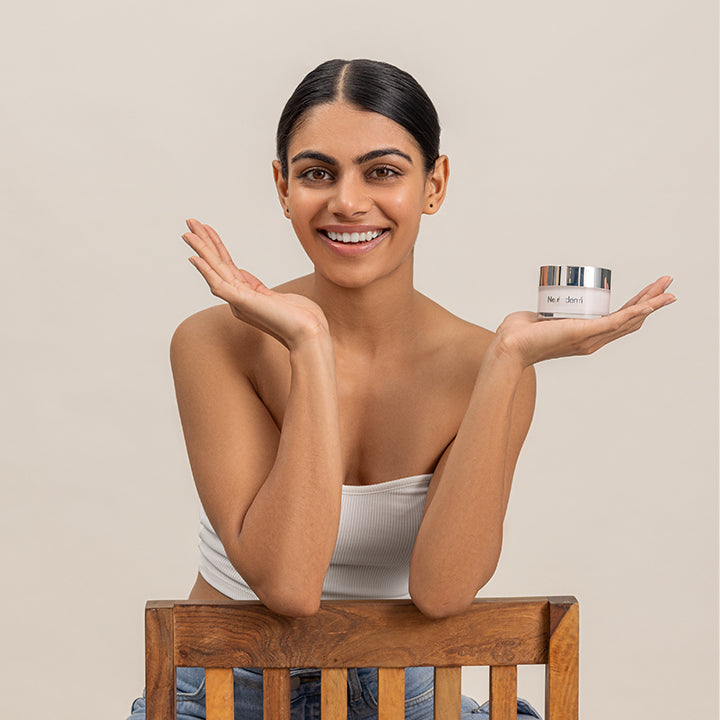How to Create a Customized Skincare Routine for Your Unique Skin Type
In the realm of skincare, one-size-fits-all solutions rarely exist. Each individual's skin is unique, with its own specific needs and challenges. To achieve optimal results, it's essential to develop a skincare routine that is tailored to your particular skin type.
This comprehensive guide will delve into the intricacies of various skin types, from oily and dry to combination and sensitive. We'll explore the key factors to consider when building your personalized skincare regimen, including ingredient choices and product recommendations. Additionally, we'll address specific skin conditions like eczema and provide targeted solutions.
By the end of this blog post, you'll clearly understand how to identify your skin type, select the appropriate products, and create a customized skincare routine that leaves your skin looking and feeling its best.
A Deep Dive into Skin Types

1. Oily Skin
Oily skin is characterized by excess sebum production, often leading to a shiny appearance and breakouts. This overproduction of oil can be attributed to various factors, including genetics, hormonal fluctuations, and certain medications. While it can be frustrating to deal with, oily skin also has its benefits, such as a slower aging process due to the natural oils acting as a protective barrier.
2. Dry Skin
Dry skin is often characterized by feelings of tightness, flakiness, and roughness. It occurs when the skin's natural moisture barrier is compromised, leading to a loss of hydration. Factors that can contribute to dry skin include harsh weather conditions, over-cleansing, and certain skin conditions. While it may seem less problematic than oily skin, dry skin can be equally uncomfortable and can lead to premature aging.
3. Combination Skin
Combination skin is a mix of oily and dry areas, typically with an oily T-zone (forehead, nose, and chin) and dry cheeks. This combination can make it challenging to find products that address both concerns without exacerbating either. Understanding the specific areas where your skin is oilier or drier can help you tailor your skincare routine accordingly.
4. Sensitive Skin
Sensitive skin is prone to redness, irritation, and reactions to certain ingredients. It can be caused by a variety of factors, including genetics, allergies, and environmental factors. Those with sensitive skin often need to be cautious about the products they use, avoiding harsh chemicals and fragrances.
5. Eczema
Eczema is a chronic skin condition that can affect people of all ages. It is characterized by dry, itchy, and sometimes inflamed patches of skin. While not technically a skin type, eczema can significantly impact how your skin behaves and requires specialized care.
Determining Your Skin Type
Identifying your skin type can be done through observation and experimentation. Pay attention to how your skin feels throughout the day, especially after cleansing and moisturizing. Look for signs such as shine, dryness, or redness. You can also consult with a dermatologist for a professional assessment.
Remember that skin type can change over time due to various factors, including age, hormonal changes, and environmental influences. It's important to reassess your skin type periodically and adjust your skincare routine accordingly.
The Power of Ingredients: A Skincare Guide

1. Sodium PCA
Imagine a magnet that attracts and holds onto moisture. That's the role of sodium PCA in your skincare routine. This humectant is a natural substance found in the skin that helps to regulate hydration levels. When applied topically, sodium PCA draws moisture from the air and binds it to your skin, leaving it feeling plump and supple. It's a versatile ingredient that works well for all skin types, but it's particularly beneficial for those with dry or combination skin, as it can help balance oil production and prevent moisture loss.
2. Colloidal Oatmeal
If your skin is feeling irritated, itchy, or inflamed, colloidal oatmeal might be your soothing savior. This natural ingredient has been used for centuries to treat skin conditions like eczema and dermatitis. Colloidal oatmeal is finely ground oats that have been suspended in a liquid, creating a creamy texture. When applied to the skin, it forms a protective barrier that helps to soothe inflammation, relieve itchiness, and lock in moisture. It's a gentle and effective ingredient for those with sensitive or problem skin.
Dermavive Hydra Cleanser is a gentle, soap-free cleanser that's perfect for all skin types. It uses natural colloidal oatmeal to lock in moisture and soothe dry skin. The pH-balanced formula won't strip your skin of essential oils, leaving it clean and hydrated.
3. Vitamin C
Think of vitamin C as your skin's superhero. This powerful antioxidant helps to protect your skin from environmental damage, including sun exposure and pollution. It also plays a vital role in collagen production, which is essential for maintaining a youthful appearance. When applied topically, vitamin C can help to brighten the skin, reduce the appearance of dark spots, and improve overall skin texture. It's a versatile ingredient that works well for all skin types, but it's particularly beneficial for those with dull or aging skin.
You can experience the power of Vitamin C in this gentle exfoliant Neutriderm C Scrub gently removes dead skin cells, revealing a brighter, smoother complexion. It helps reduce dark spots and hyperpigmentation, promoting a more even skin tone making it best choice for oily and combination skin.
4. Lactic Acid
Imagine a gentle exfoliant that can help to reveal smoother, brighter skin. That's the power of lactic acid. This alpha-hydroxy acid (AHA) works by gently dissolving the bonds between dead skin cells, allowing them to be sloughed off. This can help to improve the appearance of fine lines and wrinkles, reduce the appearance of dark spots, and even out skin tone. However, it's important to use lactic acid gradually, especially if you have sensitive skin.
5. Vitamin E
Vitamin E is a fat-soluble vitamin that acts as a powerful antioxidant. It helps to protect your skin from free radical damage, which can contribute to premature aging. Additionally, vitamin E can help to moisturize the skin and improve its elasticity. It's a versatile ingredient that works well for all skin types, but it's particularly beneficial for those with dry or damaged skin.
Neutriderm Moisturizing Lotion is a premium skincare product powered by Vitamin E phosphate. This unique ingredient offers potent anti-inflammatory and antioxidant benefits, promoting hydrated, youthful skin. It's suitable for all skin types and helps reduce the appearance of wrinkles, age spots, and erythema.
Conclusion
Now that you have a better understanding of your skin type and the key ingredients to consider, it's time to build your customized skincare routine. Remember, consistency is key when it comes to achieving optimal results.
As you continue to use your skincare routine, pay attention to how your skin responds. If you notice any adverse reactions, discontinue use and consult with a dermatologist. It may take some time to find the perfect combination of products for your skin, but with patience and experimentation, you can achieve a healthy, glowing complexion.
FAQ’s
Q: How do I determine my skin type?
A: Observe your skin throughout the day, paying attention to shine, dryness, or redness. Consult a dermatologist for professional guidance.
Q: How long should I wait before seeing results from my skincare routine?
A: Results can vary, but consistent use over time is generally necessary to see noticeable improvements.
A: Generally, cleanse your face twice daily, morning and evening.
